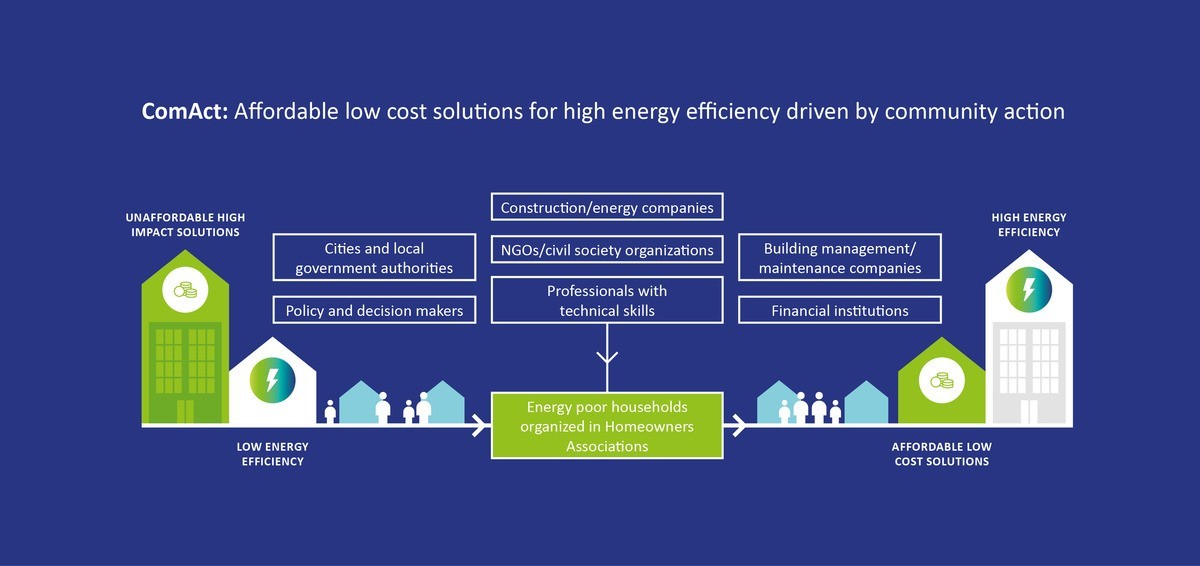ComAct, the new H2020 project set to lift citizens in CEE and CIS region out of energy poverty by developing and piloting a set of community tailored actions website
Roberta D'Angiolella

In 2019, 6.9% of the EU population said in an EU-wide survey that they could not afford to heat their home sufficiently. Energy poverty represents a problem all over Europe, and is particularly high in the East, South, South-Eastern, and Baltic regions of Europe, where GDP per capita often falls below the EU average. In most of these countries, the quality of housing is low, and the affordability of heating or cooling cost is high, despite the progress made in recent years through public investments in energy efficiency policies and measures and efforts to involve the stakeholders in addressing the problem.
The situation in the former Soviet Union republics (CIS region) is even more severe. For example, in Ukraine, 70% of flats in multifamily apartment buildings, hosting more than 30 million people are highly energy-inefficient due to their outdated equipment which poses serious challenges for many households still facing the decision between heating and eating.
Implementing energy efficiency measures is more complicated in these countries than in Western Europe, particularly due to mass privatisation of the housing sector combined with the deconstruction of the social safety net during the 1990s. Privately owned multi-family apartment blocks predominated, and increased energy costs became a burden to family budgets. In parallel, socialist-era collective maintenance mechanisms were abandoned, whereby the decay of homeowners’ associations has not been adequately addressed.
ComAct seeks to face these issues head-on. The H2020 project aims to address energy poverty in this region by empowering and activating the communities of homeowners’ associations, developing and adapting financial tools for low-income families, and optimising technical solutions that provide most favourable cost-benefit ratio for the energy-efficient improvements in multi-family apartment buildings.
This approach will be tested in five pilot countries (Hungary, Bulgaria, Republic of North Macedonia, Lithuania and Ukraine), representing the different sub-regions of the CEE and CIS territory. The impact will already be visible in the timeframe of the project, with its aim to involve more than 3000 consumers and trigger almost 10 million euros of investments in sustainable energy. However, the biggest impact of ComAct lies in the lessons learned coming out of the pilots, to be replicated all over Europe: this falls well in line with the Renovation Wave commitment to use renovation as a lever to address energy poverty and access to healthy housing for all households. ComAct’s contribution will be key in providing EU countries a set of instruments to lift millions of its citizens out of energy poverty and to ensure that buildings provide a healthy and affordable living and working environment.
Visit ComAct's project website and subscribe to its newsletter to stay always updated: https://comact-project.eu/
Follow the project on Twitter and on Facebook



